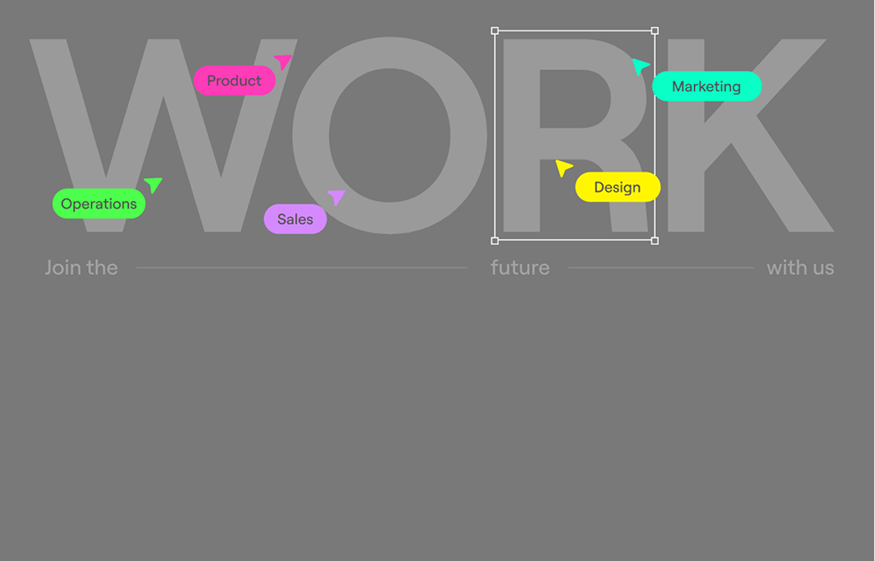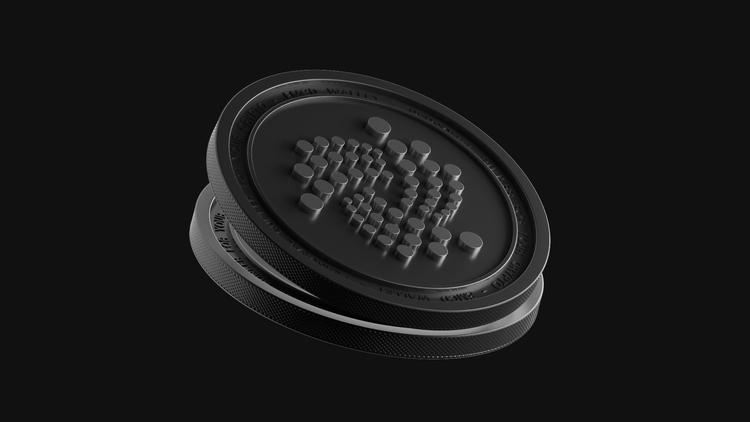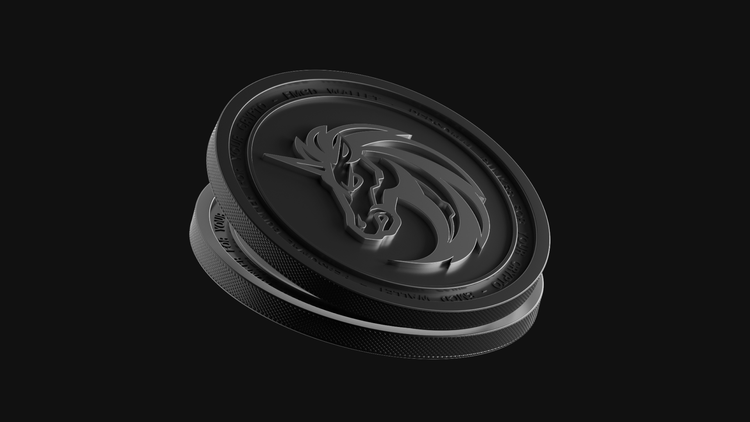Lido DAO (LDO) Token: Why This Token Is More Than Just Hype

Imagine earning rewards from staking Ethereum without locking your coins or setting up a server. No complicated setup. No risk of losing access to your node. Just one click, and your assets are already working for you.
That’s exactly what makes Lido one of the most popular platforms in the DeFi world. And at the heart of it is the LDO token, the engine that drives the protocol. It gives you the power to vote on decisions, support development proposals, and potentially become a key part of your crypto portfolio.
In this article, we’ll break down how Lido DAO works, what the LDO token is used for, how to get and use it, the pros and cons, and whether it’s worth investing in.
What’s Lido DAO and the LDO Token?
Lido is a decentralized protocol that makes staking accessible to everyone. Instead of locking up your ETH for years, you can stake through Lido and still keep your liquidity.
The project operates as a DAO, a decentralized autonomous organization. That means key decisions aren’t made behind closed doors by a small group of developers, but by the community itself.

At the core of the system lies the LDO token. Built on the Ethereum blockchain, it fully complies with the ERC-20 standard. Its main role is governance. Holding LDO gives you the right to vote on protocol changes, support development proposals, and actively take part in the project’s evolution.
Lido is governed by a DAO, but a significant portion of the tokens is concentrated in the hands of large holders. This limits the regular user's influence and raises concerns about true decentralization. Still, the voting mechanism is open to everyone, and major decisions are (at least formally) made by the community, not a centralized team.
LDO isn’t just a technical asset buried deep in code since it has real utility, especially if you're using the EMCD Wallet. This crypto wallet is a smart choice if you want to manage your LDO tokens quickly and effortlessly.
Here’s what you get with the EMCD Wallet:
- Fast deposits. Transfer LDO from an exchange or another wallet in just minutes without complex setup
- Instant withdrawals. If you want to send tokens to a friend or an exchange, then just enter the address and confirm
- Built-in exchange. Swap LDO for other popular cryptocurrencies right inside the LIDO wallet, without needing external platforms
For LDO users, the EMCD Wallet offers exactly what’s needed:
- Full support for the ERC-20 network
- Intuitive and user-friendly interface
- Strong security features
- All-in-one solution: deposit, withdraw, swap, and track your transactions
If you’re planning to hold or use LDO, the EMCD Wallet is a solid option. Everything is designed to make your experience smoother, so you can focus on your assets and DeFi opportunities, not technical headaches.
Lido’s Beginnings: What Sparked the Project
Lido launched in late 2020, right as Ethereum 2.0 kicked off a new staking era. But there was a catch: to participate, users had to lock up 32 ETH for an unknown period, which is a barrier few could afford.
Lido offered a breakthrough alternative: liquid staking. With it, your assets could continue earning rewards without being locked away, giving you both flexibility and control.
The project was founded by a group of well-known crypto enthusiasts: Konstantin Lomashuk, Vasiliy Shapovalov, Jordan Fish, and others. Their mission was clear — to make staking accessible to everyone, from complete beginners to seasoned crypto pros.

Lido's first launch took place on the Goerli testnet. After successful testing and fine-tuning, the protocol went live on the Ethereum mainnet and quickly started turning heads since it:
- Made staking dramatically easier
- Let users earn rewards without fully locking up their ETH
- Opened the door to staking with smaller amounts
Since then, Lido has seen massive growth:
- It became the largest ETH staking platform by total value locked
- Expanded to other blockchains like Polygon and Polkadot
- Its native token LDO evolved into a key element of governance and economic alignment
- The platform continues to grow, fully governed by a DAO
From day one, Lido was backed by top DeFi investment funds like Paradigm, KR1, and Semantic Ventures, giving it strong momentum and credibility in the crypto world.
With the platform launch came the LDO token launch, purpose-built as a governance tool for the DAO, ensuring that not just developers, but every user can help shape the future of the protocol.
Today, Lido DAO is a full-fledged ecosystem. It unites developers, validators, and users who believe in a decentralized future for staking.
How the Lido DAO Platform Works
Lido solves one of the biggest issues in staking: funds being locked. When you stake ETH directly, your coins are tied up until Ethereum’s upgrade phase is complete. But with Lido, that changes. Instead of freezing your ETH, you receive stETH, a token you can use right away: sell it, swap it, or use it across DeFi platforms.
stETH is a liquid staking derivative. It lands in your wallet immediately after you deposit ETH into Lido’s smart contract. From there, you’re free to use it however you like: lend it out, add it to liquidity pools, trade it, or just hold it. And yes, you’ll still earn daily staking rewards, just like with traditional staking, only without your funds being locked.
The entire system is governed by Lido DAO, a decentralized autonomous organization where decisions are made through community voting. LDO token holders have a say in:
- Protocol parameters
- Budget approvals
- Appointing node operators — professional staking providers who run the infrastructure and keep the network secure and efficient
With this structure, Lido combines flexibility for users and decentralized governance, making it one of the most innovative platforms in the staking ecosystem.
Lido is built on a well-thought-out architecture that combines staking pools, liquid tokens, a DAO, and independent validators. Each component plays a specific role and interacts seamlessly with the others. This model dramatically lowers the barrier to entry while maintaining transparency, security, and flexibility.
Here’s how the Lido DAO platform works step by step:
- You send ETH to the Lido smart contract via the official website or a supported wallet
- In return, you receive stETH, a token pegged 1:1 to ETH, issued automatically
- Your stETH earns staking rewards daily, with no further action needed
- You’re free to: hold stETH and accumulate rewards, use it in DeFi apps, swap it for other crypto, or sell it on an exchange at any time
With this setup, staking becomes as easy as a token transfer: no technical barriers, no 32 ETH minimum, and no lock-up periods.
Lido has effectively democratized staking, making it available not just to institutional players, but to everyday users as well.
The LDO Token Role in the Lido Ecosystem
The LDO token is a core component of the Lido system. It plays multiple roles, but its most important function is governance. Holding LDO gives you the power to vote on key decisions that shape the future of the platform: electing node operators, upgrading smart contracts, allocating budgets, forming partnerships, and setting long-term strategy.
Built on Ethereum and fully compliant with the ERC-20 standard, LDO is compatible with all major wallets and exchanges. It serves as both a voting token and a tool for community incentives and resource distribution.
Here’s how LDO contributes to Lido’s ecosystem:
- Lets users propose development initiatives
- Grants access to governance voting
- Rewards active contributors to the protocol
- Plays a role in fund and reward allocation
- Supports a transparent, decentralized governance model
The more LDO you hold, the greater your voting power — a standard DAO structure where collective decisions replace centralized control. This design ensures that Lido remains flexible, resilient, and focused on user interests, not just those of investors or core developers.
Beyond governance, LDO is finding its way into more use cases from DeFi apps and staking products to serving as an investment asset or being part of liquidity pools.
In short, LDO is more than just a token since it empowers you to take part in the governance of a leading staking platform.
How to Get and Use the LDO Token
If you want to join the Lido ecosystem, the LDO token is your key. No matter if you're casting votes, using DeFi tools, or backing the protocol, LDO is built for more than just developers. It’s a practical, powerful tool for anyone who wants to participate in the protocol’s future.
Here are a few simple ways to get your hands on LDO:
- Buy it on an exchange. LDO is listed on major platforms like Binance, Bybit, OKX, and others. Just pick a trading pair like LDO/USDT or LDO/ETH, and place your order
- Swap it in your wallet. If you’re using the EMCD Wallet, you can exchange other cryptocurrencies for LDO right inside the app
- Earn it through participation. Lido’s community regularly distributes LDO to active contributors through grants, governance participation, and incentive programs
Since LDO is an ERC-20 token, it works with any Ethereum-compatible wallet. But if you’re looking for simplicity and speed, the EMCD Wallet is a smart choice. It allows you to:
- Deposit, withdraw, and swap LDO instantly
- Use the Ethereum network without bridges or manual setup
- Track your balance, transaction history, and token price in real time
- Manage LDO easily, even if you're just getting started in crypto
Once LDO is in your wallet, you unlock real power in the system. LDO is a token that gives you a voice and a stake in Lido’s future. So, you can:
- Vote on DAO proposals
- Influence the direction of the platform
- Earn rewards for your participation
- Use it in DeFi: as collateral, in liquidity pools, or for lending
Keep in mind that there’s also the investment angle. The LDO price is driven by the market, influenced by protocol activity, community trust, and the overall demand for staking. If Lido continues to grow and evolve, LDO is likely to remain a valuable asset in the portfolios of both newcomers and seasoned crypto investors.
What’s more, LDO can be combined with other assets to build a flexible investment strategy. That way, you’re not just watching the project from the sidelines, but actively becoming a part of it.
Pros and Cons of the LDO Token
Like any crypto asset, LDO comes with its strengths and weaknesses. It's deeply integrated into Lido’s architecture and plays a central role in governance, but before adding it to your portfolio or using it in DeFi, it’s worth weighing the advantages and risks.
Here’s a quick breakdown:
| Advantages | Drawbacks |
| Participation in governance through DAO | Highly volatile price movements |
| Easy to buy, swap, and use in wallets | Reliant on the overall Lido protocol stability |
| Full integration with major DeFi platforms | Smart contract vulnerabilities pose a risk to funds |
| Transparent voting system | Centralization risk if large holders accumulate too much LDO |
| Real influence over the protocol’s development | Rising competition in the staking space may impact demand |
| Open-source and under active development | Requires basic ecosystem knowledge to use effectively |
From a user’s perspective, LDO makes it easy to take part in project governance. You don’t need to be a developer or a major investor. Instead, simply holding the token gives you the right to be heard. And in a decentralized system, every vote matters and helps shape the direction of the platform.
It’s also important to see LDO for what it truly is: not just a speculative asset. It has real utility, strengthens the ecosystem, and unlocks key functions within Lido.
That said, like any token, it deserves a thoughtful approach. Use it when it makes sense, and always keep an eye on how the protocol evolves since being informed is just as important as being involved.
Future Outlook for Lido DAO and the LDO Token
Lido is steadily growing, strengthening its position as one of the leading platforms in the staking space. The team remains focused on key priorities: security, multi-chain expansion, and deepening DeFi integration. The protocol already supports not just Ethereum, but also Polygon and Polkadot, significantly widening its reach and attracting new users.
The LDO token continues to play a vital role in the ecosystem. It unlocks access to governance, influences budget decisions, and represents the community voice. The more active the DAO becomes, the more valuable LDO is as a tool for participation and coordination.
With a growing list of partnerships, ongoing tech upgrades, and backing from some of the biggest names in crypto, interest in Lido and LDO is expected to remain strong in the medium to long term.
Lido’s Impact on the Crypto Staking Market
The Lido’s arrival transformed the staking landscape. Previously, staking on Ethereum 2.0 was exclusive to tech-savvy users who could lock away 32 ETH and manage their own validator node. Lido changed the game by offering a simple, accessible way to stake without locking up assets or running infrastructure.
Today, Lido holds a leading position by total ETH staked and has pioneered the liquid staking model, a trend that many other protocols have since followed. As a result, the staking market has become:
- More accessible to retail investors
- More flexible, allowing users to engage with DeFi while earning rewards
- More decentralized, thanks to the DAO governance structure
Lido transformed staking from a complex process into a gateway for broader DeFi participation, fueling its rapid growth.
Is LDO Worth Investing In?
LDO is a governance token used within the Lido protocol to vote on key proposals and shape the DAO's future. Its value comes not from hype or speculation, but from the activity of the platform and the involvement of the community.
You might consider investing in LDO if you:
- Believe in Lido’s long-term role as a leader in the staking space
- Want to participate in DAO governance and have a say in protocol decisions
- Are looking for a utility-driven asset, not just something to flip for short-term profit
For short-term speculation, LDO isn’t the ideal pick. But as a part of a long-term strategy, especially if you’re actively engaging with the Lido ecosystem, it can become a valuable and stable component of your portfolio.
To make the most of LDO, it’s important to track project activity, keep an eye on governance votes, and follow technical developments, all of which can influence its value.
Lido solves a real problem by making staking more accessible. And LDO enhances that system by giving users the power to help guide its evolution.
If you’re involved in Ethereum, interested in DeFi, and want to be part of a decentralized community, LDO is a practical tool for shaping the future of staking.
FAQ
What is the LDO token and what is its main function?
LDO is a governance token in the Lido ecosystem. It allows holders to participate in DAO votes and influence key decisions on the platform.
How can I take part in governance using the LDO token?
Keep your LDO tokens in a supported wallet and vote on proposals via the Lido DAO platform. The weight of your vote depends on how many tokens you hold.
Where can I buy LDO tokens?
You can buy LDO on exchanges like Binance, Bybit, OKX, and others. It's also available via EMCD Wallet with built-in exchange functionality.
What are the risks of using the Lido platform?
Main risks include smart contract vulnerabilities, potential centralization of governance, and reliance on validators. These risks are mitigated through audits and a decentralized DAO structure.
Can I earn passive income with the LDO token?
LDO doesn’t generate income on its own, but it can be used in DeFi protocols like liquidity pools, lending, or as collateral to potentially earn rewards.
How is Lido different from other staking platforms?
Lido simplifies staking: you don’t need to run nodes or lock up 32 ETH. You can stake any amount and receive the liquid token stETH in return.












